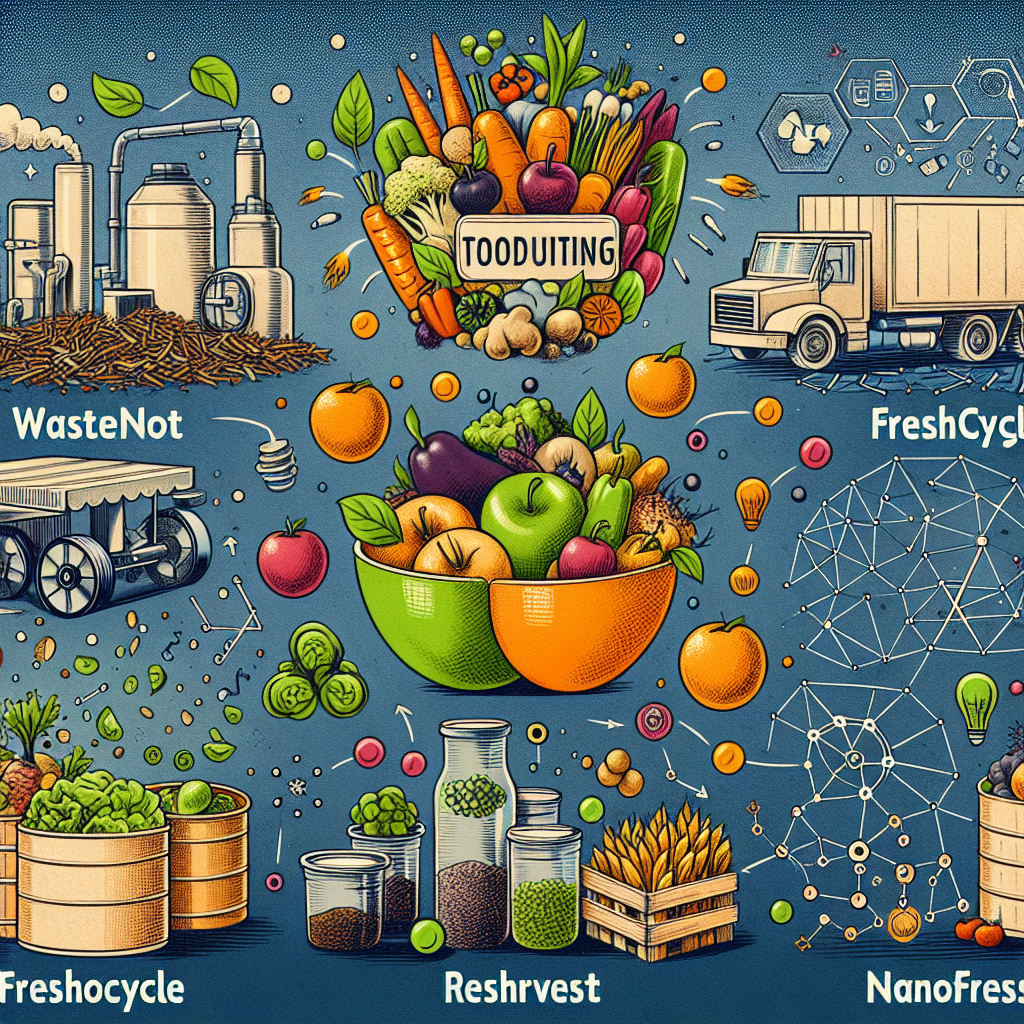· 3 min read
Revolutionizing Food Waste: Promising Startups Leading the Charge
One such startup leading the charge is "FreshCycle," a company that aims to reduce food waste at the source. By partnering with grocery stores and restaurants, FreshCycle implements innovative solutions to prevent food surplus in the first place. Through real-time data analysis, they identify purchasing patterns and adjust inventory accordingly, minimizing the risk of excess perishable items. Additionally, FreshCycle addresses the issue of unsold but perfectly edible food by redistributing it to local food banks and charities. This not only reduces waste but also helps tackle food insecurity in communities.

Revolutionizing Food Waste: Promising Startups Leading the Charge
In recent years, the issue of food waste has gained significant attention as people become increasingly aware of the environmental and societal impact it poses. According to the Food and Agriculture Organization (FAO) of the United Nations, about one-third of the food produced in the world is wasted, resulting in a massive strain on resources and contributing to greenhouse gas emissions. However, amidst this challenging problem, promising startups are emerging as the pioneers in transforming the way we handle food waste.
One such startup leading the charge is “FreshCycle,” a company that aims to reduce food waste at the source. By partnering with grocery stores and restaurants, FreshCycle implements innovative solutions to prevent food surplus in the first place. Through real-time data analysis, they identify purchasing patterns and adjust inventory accordingly, minimizing the risk of excess perishable items. Additionally, FreshCycle addresses the issue of unsold but perfectly edible food by redistributing it to local food banks and charities. This not only reduces waste but also helps tackle food insecurity in communities.
Another notable startup, “WasteNot,” focuses on consumer awareness and behavior change. They have developed a user-friendly mobile application that empowers individuals to reduce their personal food waste. The app tracks users’ food purchases and consumption, providing personalized recommendations for reducing waste. Additionally, WasteNot educates users about proper food storage techniques, meal planning, and creative recipes to make the most of ingredients before they spoil. By encouraging mindful consumption, WasteNot inspires individuals to become part of the solution rather than contributing to the problem.
The issue of food waste extends beyond households and restaurants, as commercial producers are also responsible for significant amounts of waste. A groundbreaking startup addressing this challenge is “ReHarvest.” Leveraging the power of technology, ReHarvest connects farmers with surplus produce to manufacturers in need of raw materials. By streamlining the supply chain through an online marketplace, ReHarvest prevents perfectly good produce from going to waste, while simultaneously supporting local farmers and reducing the environmental impact associated with food production.
Furthermore, nanotechnology is revolutionizing the fight against food waste, and companies like “NanoFresh” are at the forefront of this innovation. NanoFresh has developed a nanocoating that can be applied to fruits and vegetables, extending their shelf life significantly. This technology creates a protective layer around the produce, preventing spoilage and decay. By increasing the longevity of perishable items, NanoFresh reduces the need for early disposal and enables retailers to sell products that would have otherwise been discarded.
In conclusion, the battle against food waste is being led by a promising wave of startups dedicated to revolutionizing the way we approach this global issue. FreshCycle, WasteNot, ReHarvest, and NanoFresh are just a few examples of companies making significant strides in reducing food waste. Through their innovative solutions, these startups address the problem at multiple levels, from prevention and redistribution to consumer education and advanced technology. As they continue to gain traction, these trailblazing startups are paving the way for a sustainable future by transforming the way we view and manage food waste.